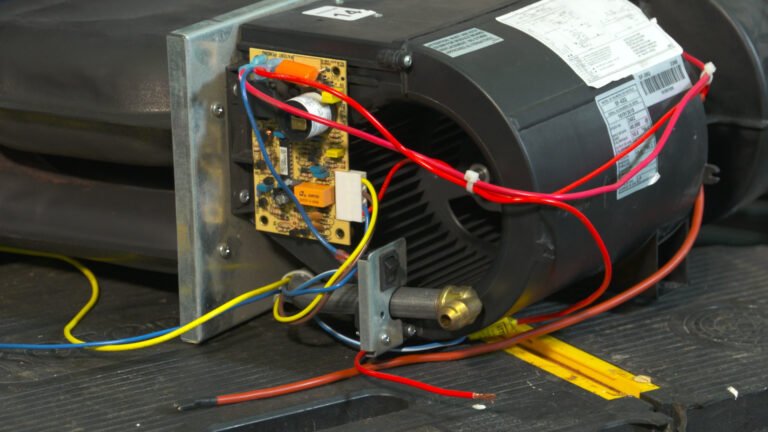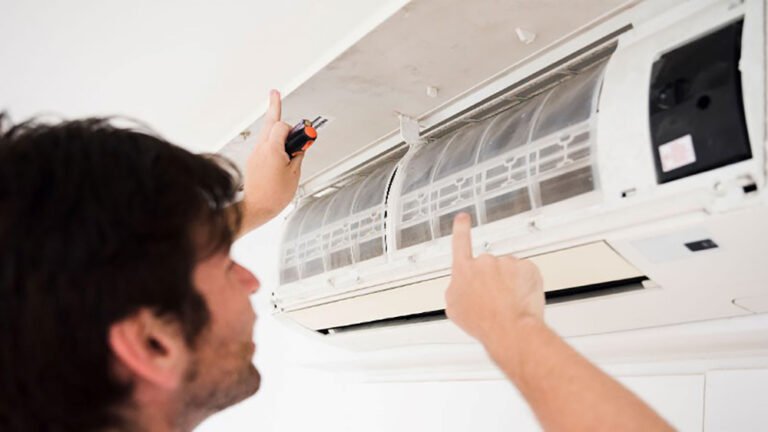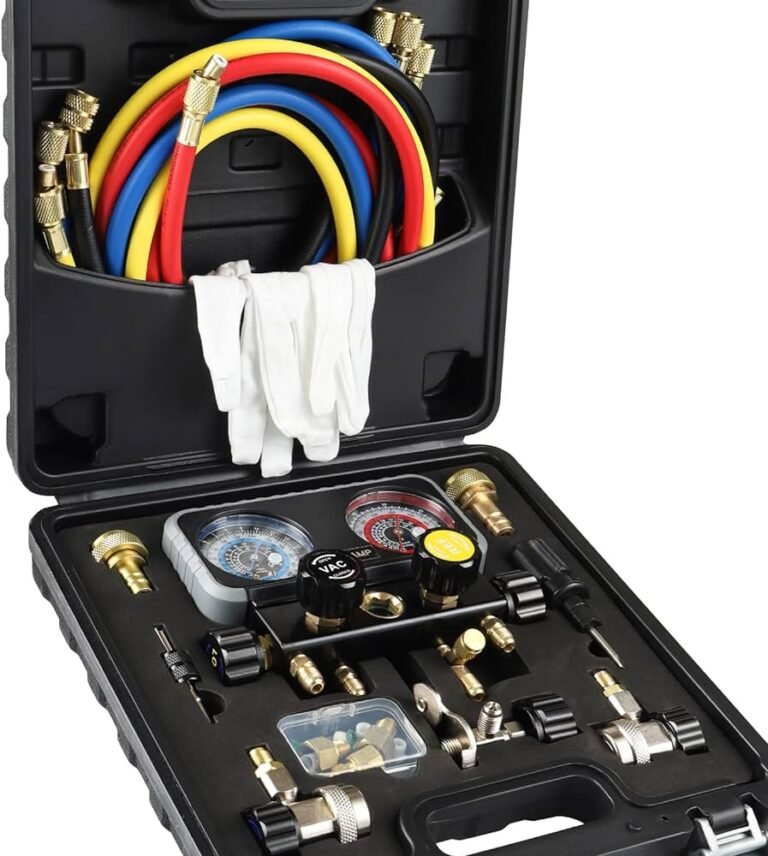Will Low Antifreeze Cause AC Failure? Unveiling the Truth
Low antifreeze levels can cause the AC to not work properly.
The Impact Of Low Antifreeze On Air Conditioning Units
Low antifreeze levels can have a significant impact on the performance of air conditioning (AC) units. Insufficient antifreeze can lead to several consequences that may affect the overall functioning of the AC system.
1. Impaired AC Performance: Inadequate antifreeze levels can cause the AC to work improperly. The cooling efficiency may decrease, resulting in weak airflow and insufficient cooling in the room.
2. Damage to AC Components: Insufficient antifreeze can lead to the formation of ice on the AC coils, which can damage critical components such as the compressor. This can result in complete AC failure or costly repairs.
3. Common Signs of AC Failure: AC units with low antifreeze levels may exhibit various signs of failure, including reduced cooling capacity, strange noises, leaks, and frequent system cycling.
It is important to regularly check and maintain the antifreeze levels in your AC system to ensure optimal performance and prevent potential damage.
The Role Of Antifreeze In Air Conditioning Systems
The Role of Antifreeze in Air Conditioning SystemsAntifreeze is a crucial component in air conditioning systems, as it serves multiple purposes. Firstly, it prevents freezing of water or coolant inside the system, ensuring optimal operation even in low temperatures. Secondly, it raises the boiling point of the coolant, preventing overheating and potential damage to the system. It also helps in protecting the internal components from corrosion and rust. Proper antifreeze levels are paramount to ensure the efficient performance of the air conditioning system. Low antifreeze levels can disrupt the cooling process, leading to inadequate temperature regulation.
Antifreeze also acts as a coolant. Its chemical properties allow it to dissipate heat effectively, preventing the system from overheating. This is especially important during warm weather or extended periods of use. It helps maintain the system’s efficiency and prevents any potential damage caused by excessive heat. Therefore, regular monitoring and maintenance of antifreeze levels in the air conditioning system are essential to ensure proper functionality and avoid any potential issues.
Identifying Low Antifreeze Levels In Ac Units
Antifreeze is crucial for the smooth functioning of an AC unit, helping to regulate temperature and prevent overheating. Regularly checking antifreeze levels is essential to keep the system running efficiently. Here are some steps to follow:
1. Start by turning off the AC unit and allowing it to cool down.
2. Locate the AC’s cooling system fill cap, usually found near the radiator or coolant reservoir.
3. Safely open the cap and inspect the antifreeze level. If it is below the recommended level, it indicates a low antifreeze level.
If you notice any of the following signs, it could indicate low antifreeze in your AC unit:
- Insufficient cooling or inconsistent temperature regulation
- Unusual noises or vibrations from the AC system
- Leaking coolant or a peculiar odor
- Visible signs of internal or external damage
Proper maintenance and regular checks of antifreeze levels are critical to ensure the smooth operation of your AC unit. Consult a professional technician for assistance, as they have the expertise to diagnose and address any antifreeze-related issues
Potential Ac Problems Caused By Low Antifreeze
Potential AC Problems Caused by Low Antifreeze
Low antifreeze levels in your AC system can lead to several issues that can affect its performance and overall functionality. These problems include restricted airflow and reduced cooling capacity, increased strain on the compressor and other components, and the potential for refrigerant leaks and damage to the system.
Restricted airflow and reduced cooling capacity: Insufficient antifreeze levels can result in reduced airflow through the system, preventing the AC from effectively cooling your space. This can lead to discomfort during hot weather and a less comfortable indoor environment overall.
Increased strain on the compressor and other components: The compressor is a vital component of the AC system, responsible for circulating and pressurizing the refrigerant. Low antifreeze levels can cause the compressor to work harder, leading to increased strain on the system and potentially causing it to fail.
Potential for refrigerant leaks and damage to the system: Antifreeze not only helps regulate the temperature in your AC system but also acts as a lubricant for certain parts. Inadequate levels of antifreeze can cause these parts to overheat and potentially result in refrigerant leaks, leading to further damage to the system.
Tips To Prevent Ac Failure Due To Low Antifreeze
Proper maintenance is crucial to ensure your AC unit functions efficiently. Regularly monitoring antifreeze levels is one of the key steps to prevent AC failure due to low antifreeze. Low antifreeze levels can cause your AC to stop working effectively or even completely fail. Make sure to check the antifreeze levels and top up when necessary. Additionally, it is important to properly maintain and service your AC unit to ensure optimal performance. Clean or replace filters regularly, inspect the condenser coils, and keep the outdoor unit free from debris. Lastly, seeking professional inspection and servicing will help identify any potential issues before they become major problems. An experienced technician can perform a comprehensive check and ensure that all components are in good working condition. By implementing these tips, you can prevent AC failure and enjoy cool and comfortable indoor temperatures.

Credit: www.morganscloud.com
Frequently Asked Questions Of Will Low Antifreeze Cause Ac Not To Work
Why Is Low Antifreeze Causing My Ac To Not Work?
Low antifreeze levels can lead to a lack of coolant in the AC system, causing it to malfunction. Antifreeze plays a crucial role in regulating engine temperature, and when it’s low, the AC system may not receive the necessary cooling.
This can result in reduced efficiency or complete failure of your AC.
Can Low Antifreeze Damage The Compressor In My Ac?
Yes, low antifreeze levels can potentially damage the AC compressor. The compressor relies on the proper flow of coolant to maintain optimal temperature and pressure. When there isn’t enough antifreeze, the compressor can overheat and suffer damage. Regularly checking and maintaining proper antifreeze levels is essential to prevent costly compressor repairs.
How Can I Check If My Antifreeze Level Is Low?
To check if your antifreeze level is low, start by locating the coolant reservoir. It’s usually a translucent plastic container near the radiator. Ensure your engine is cool, remove the reservoir cap, and check the fluid level against the markings on the container.
If the level is below the minimum mark or significantly lower than before, you may have low antifreeze levels.
What Are Some Signs Of Low Antifreeze In An Ac System?
Several signs indicate low antifreeze levels in your AC system. These include reduced cooling performance, weak airflow, strange odors, and unusual noises coming from the AC unit. If you notice any of these symptoms, it’s crucial to have your antifreeze levels checked and replenished.
Ignoring the issue may lead to more severe AC problems down the line.
Conclusion
To sum it up, low antifreeze levels can indeed cause your AC not to work properly. Insufficient coolant can lead to overheating, which may result in a malfunctioning AC system. Maintaining the recommended antifreeze levels is crucial for the overall performance and functionality of your vehicle’s cooling system.
Regularly checking and topping up antifreeze levels can help you avoid potential AC issues and improve your car’s overall functioning.







